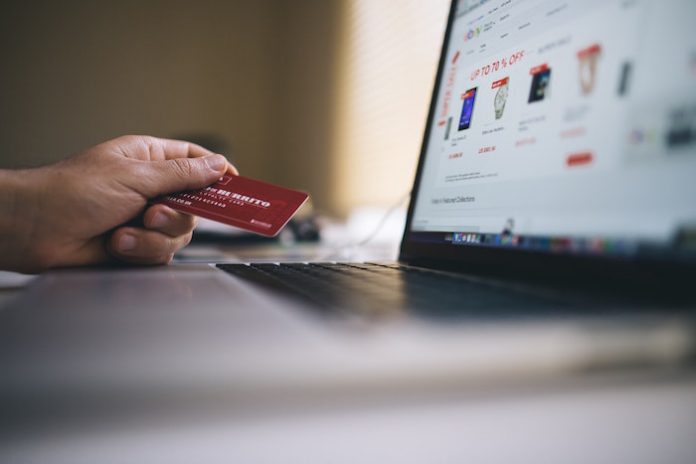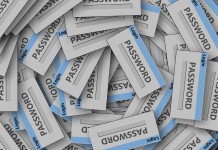A January study released from the Department of Homeland Security is focused on curbing the sale of counterfeit goods online, calling it an illicit trade that is inflicting significant harm on American consumers and businesses. Fraudulent practices are also likely to increase during times of crisis. As more shoppers turn to e-commerce due to the COVID-19 pandemic, a number of bad actors are flooding online marketplaces with fake goods.
Small businesses that sell products online are likely all too familiar with the impact of counterfeit products. Consumers expect safe, genuine products and quality product information. Trust disappears when a consumer is duped into purchasing inauthentic, inferior, or unsafe products. Without trust, a small business’s brand loyalty, future sales, and long-term growth could be in jeopardy.
Consider these findings from a recent study by Incopro:
- One in two US consumers (52%) have lost trust in a brand after unintentionally purchasing counterfeit products online.
- 26% of US consumers have been fooled into buying at least one counterfeit product in the past 12 months.
Government action alone is not enough to bring about change. Reputable business owners should take a proactive approach and abide by online marketplace guidelines that call for the use of authentic product identification to protect their burgeoning brands. Becoming educated about product identification, small businesses can gain credibility in the eyes of retailers and instill consumer confidence in their legitimate products.
Investigating Potential Counterfeit
One small business, JAM Paper & Envelope®, recently offered their perspective on counterfeiting, and discussed how they’ve used unique identification numbers to keep bad actors from encroaching on their growth opportunities.
The New Jersey-based paper company believes the recently proposed government mandates could be a major turning point for credible businesses that rely on online marketplaces as a main source of sales. Family owned/operated since 1955, the company offers a wide range of distinctly colorful paper products. They made the leap to become an all e-commerce business in 2018 after operating a successful local storefront for decades.
“We do see counterfeits on our products and it’s nearly impossible for us to know for sure whether a seller has a legitimate JAM Paper Brand product or not,” said Kelly Ennis, director of marketplace strategy and analytics, JAM Paper & Envelope.
One of the ways JAM investigates potential counterfeiters is to conduct test buys on their own listings, which takes valuable time and resources away from other aspects of the business. JAM will purchase an item from a seller claiming to sell a legitimate product and the team compares the product’s identification numbers and barcodes upon receipt.
Identification numbers like the Global Trade Item Number (GTIN), which is the number located under the barcode lines (a U.P.C.), are frequently cited in online marketplace vendor guidelines. When obtained from the information standards organization, GS1 US, the business owner receives an identification number that is uniquely structured to provide a necessary link between the brand owner and the product. They are often used during the on-boarding process to help the marketplace determine if a product is valid and ready to be sold on their sites. In some cases, if the product’s identification number comes into question, the product listing will be hidden from consumer view.
“When we receive an item with that does not have the right GS1 identification number, we know it’s counterfeit,” said Ennis.
The team reports the violation to the online marketplace, showing the order number, barcode, and images of the counterfeit product from the test buy as proof. The process of removing counterfeiters from their listings takes about one to two weeks.
Deterring Bad Actors
Ennis is hopeful that the new legislation will be a deterrent for counterfeit sellers. Not only does the problem cause costly headaches for legitimate businesses, it creates frustration to consumers who are unaware their hard-earned dollars are going to fraudsters.
“We are big fans of the proposed legislation and we think it will have significant benefits to us as a seller,” Ennis explained. “Clearing the sites of counterfeiters will offer a better experience for legitimate sellers and, of course, a better experience for customers who will no longer have product authenticity concerns.”
Many small businesses are also encouraged by the swift action e-commerce platforms have taken in the wake of the coronavirus outbreak and hope the action deters more bad actors in the future. In March alone, the leading online marketplaces removed nearly one million products from unscrupulous sellers from their website. Sellers pushing fake items such as Vitamin C boosters or fraudulent personal protective equipment like surgical masks were part of the major sweep.
Ultimately, for small businesses owners, the number one priority is serving their customers and securing their long-term loyalty. To maintain this focus on the consumer while protecting your business from counterfeiters, small business owners can stay educated on vendor guidelines and adhere to best practices for listing their products.
Find a Home-Based Business to Start-Up >>> Hundreds of Business Listings.

















































